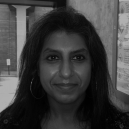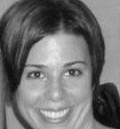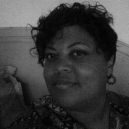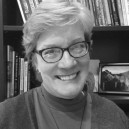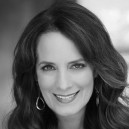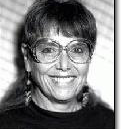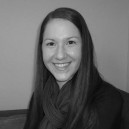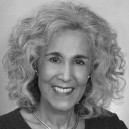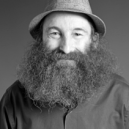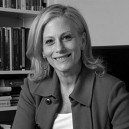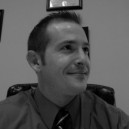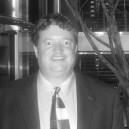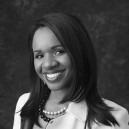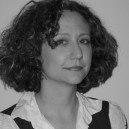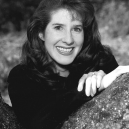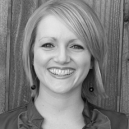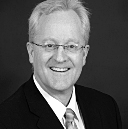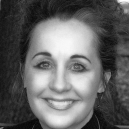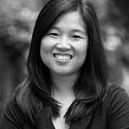Janet S. Civitelli
Career Counselor
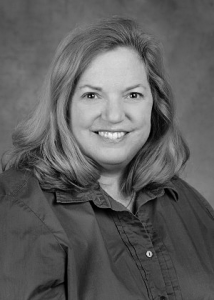 All it took was a volunteer match service and a short stint teaching job search classes to low-income clients for Janet Scarborough Civitelli to realize that career counseling was what she wanted to do. Now she runs her own successful career counseling business, maintains an informational and helpful website, and is set to publish her first book sometime next year. Civitelli makes it clear, recruiting and career counseling are two entirely different fields. Civitelli doesn't help clients find jobs, she helps them set goals and implement plans that help them develop their career and find jobs that fit well for them. She has plenty more to say, luckily for us, in this interview so read on for advice, stories, and other potentially useful tidbits of information that will help you learn more about career counseling and decide if that field is the right one for you. Enjoy!
All it took was a volunteer match service and a short stint teaching job search classes to low-income clients for Janet Scarborough Civitelli to realize that career counseling was what she wanted to do. Now she runs her own successful career counseling business, maintains an informational and helpful website, and is set to publish her first book sometime next year. Civitelli makes it clear, recruiting and career counseling are two entirely different fields. Civitelli doesn't help clients find jobs, she helps them set goals and implement plans that help them develop their career and find jobs that fit well for them. She has plenty more to say, luckily for us, in this interview so read on for advice, stories, and other potentially useful tidbits of information that will help you learn more about career counseling and decide if that field is the right one for you. Enjoy!
How did you get into the field of career counseling?
I was working in the software development industry in Austin and I felt like something was missing from my career. I went to a volunteer match service and I asked them to find something meaningful for me to do. Because I had recruiting experience, they asked if I could teach job search classes for a community agency serving low income clients. First I volunteered one night per week, then two, and then I started thinking of making a career change. I went to a psychologist who specialized in vocational assessment and the results showed that counseling would be a good field for me.
What kind of education is required, and what kind of education would you recommend to be successful as a career counselor?
There are two types of knowledge that are needed, counseling skills and understanding of how the workplace operates. I had a background in business before I became a counselor and it has been helpful to me, but anyone can become educated about business by reading and talking to people about work. Universities and community agencies generally hire people who have completed a masters in counseling and to have some experience in career counseling specifically (obtained through paid or volunteer experiences). The National Career Development maintains an excellent list of competencies they suggest you develop. I enjoy school so I completed both a masters and a Ph.D. in counseling psychology at The University of Texas at Austin.
Can you tell us a bit about your business? What exactly do you do for your clients?
After years of working face-to-face with clients, my business is now 100% telephone and email-based. This is partly because my family has moved several times for my husband's career and I have clients from each of the places we have lived, plus over time, the coaching industry changed people's expectations about convenience and geographic limitations. I completed coach training from the College of Executive Coaching and they convinced me that you could do great work via telephone and email and my experience confirms this.
I have three types of clients, those seeking to choose a path for the first time, those on a path who want to change it, and people who are happy with their current career focus but they want to advance or fine-tune. I have specialty expertise in working with clients in the technology industry and with entrepreneurs, so a large number of my clients are in one of those two categories.
My next goal is to develop e-courses because I believe that's the future of career counseling. People love learning on demand at any time of day or night and I think that's great.
Where do you tend to get most of your clientele? What have been the most important ways you have been able to build yourself and your brand in this industry?
Writing and speaking have both been effective marketing strategies. My website has been my single biggest source of client inquiries. I also receive referrals from therapists who don't do career development work and they know I work well in partnership with other helping professionals. I stick to my specialization and I don't get in the way of therapeutic work addressing other areas of challenge.
Colleagues tell me that writing a book is also an excellent marketing strategy and my first book (on career decision-making) comes out later this year. It will be self-published through Amazon, so a lot of the hurdles of traditional publishing are removed when you sell a book that way.
What are your favorite aspects of your job?
I love helping people get what they want from work and life. Someone might be unemployed for a year and after learning how to conduct a more effective job search, that person lands a great new job. Or someone might be feeling absolutely miserable in their job and we do career assessment and discover their current role just isn't a good fit. Helping that person transition to a better place is very rewarding. I also particularly enjoy helping clients to increase happiness and decrease suffering.by identifying patterns in how they respond to other people in the workplace and changing those typical reactions.
What are some of the hurdles you have faced in this career that others interested in becoming a career counselors should consider?
I am mistaken for a recruiter all the time. People think career counselors find jobs for them and we don't. We teach the process of setting goals and we support clients as they implement a plan. Clients are disappointed that counselors can't provide the perfect list of job leads or introduce them to hiring managers and some clients are upset when they discover that change is often challenging. Many clients wish that hiring a counselor meant that someone would do the work for them and some clients become angry when they realize this isn't how counseling helps. Also, the counseling profession has a high burn out rate. You have to learn to take care of yourself or you will start dreaming of escaping from people and problems. Some of my friends left the profession because they couldn't handle the pressure any more.
Can you give us some insight into some of your client success stories while working as a career counselor.
I answer that question by directing readers to my LinkedIn profile because clients describe their experiences there: http://www.linkedin.com/in/janetcivitelli
Also, one client described her experience with e-coaching, here: http://www.vocationvillage.com/benefits-of-e-coaching/
Any final words of wisdom for people considering career counseling as a vocation?
I encourage counselors to consider this niche because there is such a high demand for well-trained helping professionals to assist clients with employment concerns. Join NCDA and check it out.
Follow Janet on Twitter @JanetCivitelli, on Facebook, and her Google+.








